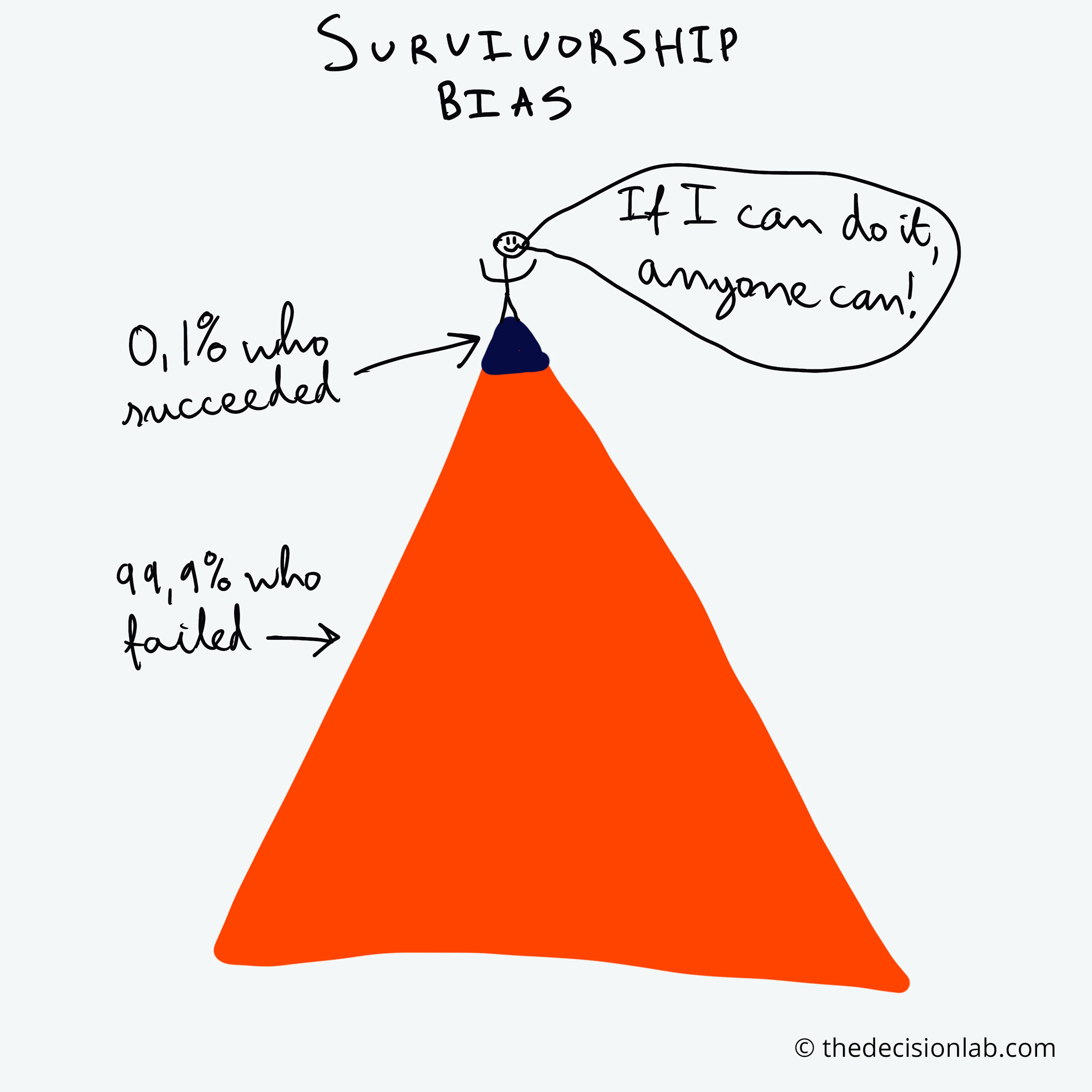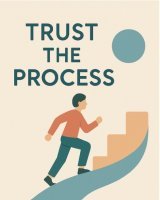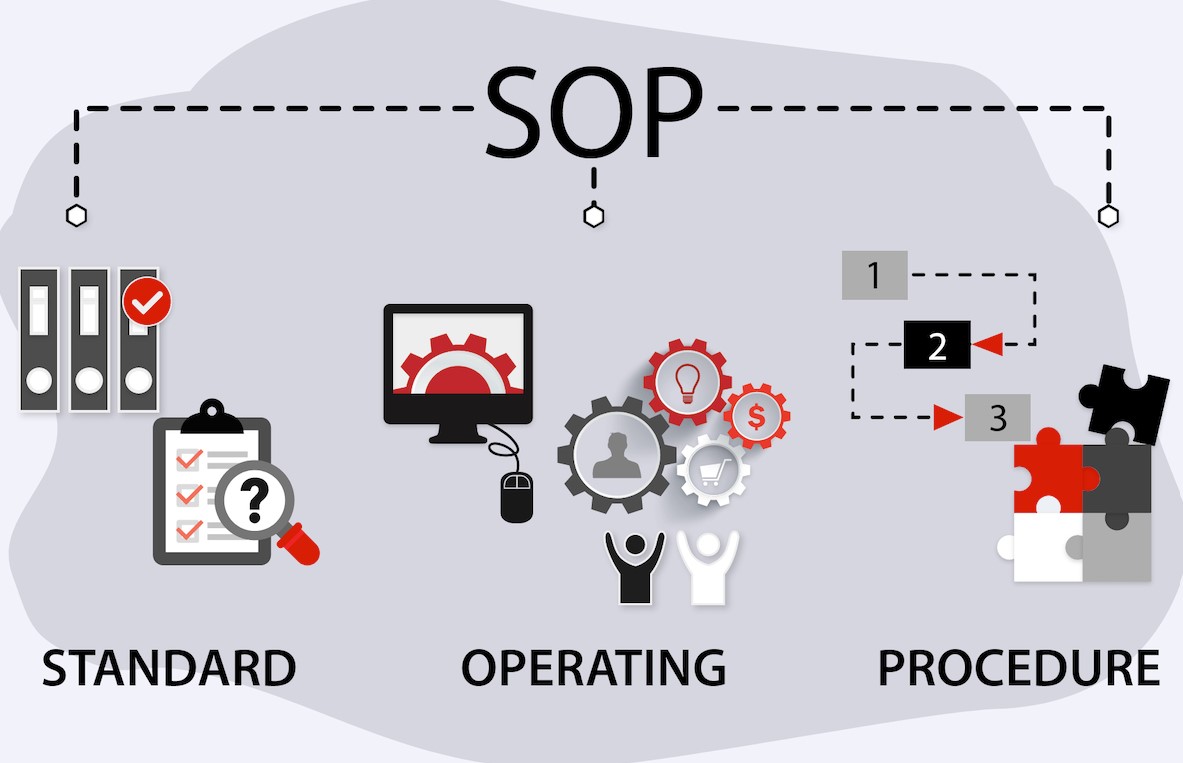Easing The Weight Of Expectation
Expectations Are Resentments Waiting To Happen
The Weight Of Expectation
Commenting on the weight of expectation Ashton Springer,
the talented artist
who created this powerful image asks:
"Don’t you often feel like you are carrying the weight of the world on your back? Crippling expectations from yourself and those around you? "
As author Robin LaFevers aptly expressed it:
Expectations are resentments waiting to happen.
"We humans are a bottomless pit of expectations."
"By having expectations, we are planting the seeds of our future sense of failure when those expectations aren’t met. This is especially true when so many of our expectations are almost completely outside of our control".
Expectations fall into two types, external expectations that are imposed upon us by others such as our parents and family, social groups we belong to and our employer; and internal expectations that we impose upon ourselves.
The first category are a matter of choice. We can choose to be bound by the expectations of others or we can choose to step outside of their expectations.
The weight of family expectations
Of course the weight of expectations imposed by parents and family can be heavy, living up to cultural and familial expectations without living one’s own truth can be tough. Breaking away can seem even tougher. But it is a choice.
This is a choice I had to make about 50 years ago when I broke away from my excessively religious and overbearing wider family, and it is a choice I have never regretted. It was tough, but it was worth it.
Victor Ayeni writing about the "The Crushing Weight of Family Expectations" in Nigerian society observes:
"Few months ago, as I was discussing with my students, I realized the blighting impact parental manipulation can have on young people and their self-identities.
These were teenagers who were visibly bogged down in their career choices by the weight of parental expectations. For many, their course of study was dictated by overbearing parents, uninformed teachers, myopic counselors and manipulative clerics.
Right from the cradle, they were merely raised to live as a clone of someone else. Most of the time, their family. Most of these undergraduates apparently got misinformed by an equally misinformed family figure. Get proper counselling from someone in the know."
If the pressure of familial and societal expectation becomes too overwhelming to make the decision to follow your own path, don't hesitate to seek professional help.
A good therapist or
counselor can provide invaluable support, guidance, and coping strategies
to navigate through the execution of this process.
The expectations we set for ourselves
The second category of expectation is more tricky because these are the expectations that we set for ourselves.
This article is focused on these expectations and about understanding:
- How and why we set these expectations
- How we can manage our expectations
- How we can set about easing the weight of our expectations.
Ego is the enemy
Our start point is understanding that the ego has a very clear idea of how things ought to be, and its intention and expectation is inextricably linked to circumstance. It has no sense of interconnection and the bigger picture.
As a result of this we favour the visible, the embedded, the personal, the narrated, and the tangible; we scorn the abstract.
When reality doesn’t match that expectation the result is frustration and pain.
Robin LaFevers adds another dimension that compounds this frustration and pain:
"In many cases, expectations come out of a need or hole in our core self that we are trying to fill.
Often, in the deepest, darkest recesses of that hole sits fear. Fear of not being enough as we are."
Fundamentally this is all about our egos, as Ryan Holiday so aptly put it: "Ego Is The Enemy".
A personal illustration
As a personal example of this, I was walking on the beach early one morning near where I live in the UK. I was enjoying the sound of the sea lapping on the shingle.
My mind was in neutral and I was feeling
gratitude for such a beautiful morning and for the blessing of living by
the coast.
My thoughts then drifted and wandered to a situation where I was trying to help a family I am close to in S.E Asia, and then my mind drifted to a specific business deal that
could make that assistance possible…
My
thoughts then drifted further into deeper analysis of how much this mattered
to me and all the good things that depended on getting the result I
wanted.
Then I started getting frustrated and within a few short minutes my peace of mind was destroyed and I felt tense, anxious and resentful.
The Importance Of Expectations In Everyday Life
It is important to note that there are areas of life where expectations provide essential guidance on what is expected of ourselves and others, and this is particularly relevant in family life and in our working lives.
In everyday life setting expectations serves several purposes in both personal and work contexts for:
- Creating clarity and communication
- Promoting accountability
- Evaluation and feedback
- Driving motivation
- Resource allocation
- Conflict resolution
- Building trust and relationships
Effective expectation-setting lays the foundation for productive collaboration, accountability, and continuous improvement within organisations and relationships.
In this context we can think of expectations as "Standard Operating Procedures".
Within a work or organisational context, easing the weight of expectation should take place within the framework of line-management and group leadership. Or course this doesn't always work out quite as well as we would we would want, but in most of these contexts there is some form of protocol or framework for resolving our expectation related issues.
However, in personal relationships
easing the weight of expectation is not always so straightforward because of the inevitable fluidity and lack of definition of expectations, or lack of mutual agreement regarding our expectations.
Easing The Weight Of Expection In Personal Relationships

Here are a few quick pointers to help you ease the weight of expectations within your relationships:
- Acknowledge your limits and set boundaries
One of the first steps in easing the weight of expectation in your relationships with others is by acknowledging your limits and setting boundaries.
I found considerable personal release and freedom when I learned the art of saying "No".
- Embrace Imperfection
Perfectionism often fuels the pressure of expectation but it is an unrealistic standard especially in the context of social media.
This is a generational issue. Older people like me are not especially influenced by social media, whereas younger people maybe be more susceptible to peer pressure.
- Define Your Own Success
Society
often dictates what success should look like and again, this is especially true in socal media so it's crucial to
define success on your own terms and in line with what truly
matters to you.
- Practice Self-Compassion
This involves treating yourself with the same kindness and understanding that you would offer to a friend.
This may seem rather basic but its surprising how many of us - especially "Type A" people - can be really demanding of ourselves.
So for some of us, the message is: "Cut yourself some slack!"
- Focus on the Journey
While goals are important, it's essential to enjoy the journey towards achieving them and to find joy in the present moment.
This may sound like a cliche, but all we ever have is the present moment, everything else is a memory or a projection.
- Cultivate a Supportive Environment
Surround yourself with people who uplift and support you.
Avoid toxicity in your relationships.
This has been a big issue for me, and especially in my business relationships, and distancing myself from such people has proved to be very important to my well being.
- Prioritize Self-Care
Taking care of your physical, emotional, and mental well-being is essential for easing the weight of expectation by engaging in activities that rejuvenate and replenish your energy.
This point sounds a bit "motherhood and apple pie" as our US friends say it. But obvious as it is, it is an area that some of us neglect.
Practical Guidelines For Easing The Weight Of Your Own Expectations

Here are 5 things we need to be aware of that can add to the weight of expectation and they are avoidable:
[1] Blinded By Beliefs
We tend to see that which aligns with what we believe, and to act upon those beliefs rather than act in alignment with reality.
[2] Blinded By Experience
The issue isn't past experience and the beliefs that we hold, the issue is our attachment to that experience and those beliefs.
[3] Trying Too Hard
This may sound counter-intuitive, but you may not be as important to the results as you’d like to think you are, so stop trying too hard.
[4] The Narrative Trap
We are hard wired to tell stories and these stories are our way of trying to find meaning in life and to make us feel safe.
There is module in our brains that seeks explanations and establishes causality where frequently there is none.
We need to understand how to avoid the narrative trap.
[5] Attached To Outcomes
We have an inbuilt, hardwired tendency to assume that
everything revolves around "me" and we automatically attach to our desired outcome which adds heavily to the weight of expectation.
We need to learn how to practice non-attached mind by consciously setting aside our preferred outcome or goal - or indeed any outcome or goal - and just focusing on the processes involved in the task in hand.
A focus on process, rather than outcome, leads to better results over the long-run.
Useful guidelines
[1] Life Is Non Linear

Many of the systems in our everyday life move in a linear fashion. So for example, every exam you take at school, university or professional training brings you closer to graduation or certification.
Or, every
dollar saved and invested in your retirement plan brings you closer to a
comfortable retirement.
This is what we are used to and this is what we are brought up to expect and this is what we are "hard wired" to expect. But the reality is that much of life is "unfair" because it is non linear.
Lack of predictability
This means that what has worked before will not necessarily work again - so if you keep on doing the same things over and over as you have before it does not guarantee a predictable result.
But when there is a non-linear relationship between the steps and their impact and, at some unknown and indeterminate point, a tipping point is reached and a significant and often unstoppable effect or change takes place then this makes the rewards of going the extra mile disproportionately big.
It’s hard for us to see these tipping points in advance, so without visible progress most people give up too soon and do not receive the disproportionately large rewards.
The key takeway here is that much of life is non-linear, which makes the rewards of continued effort disproportionately big.
[2] Correlation Is Not Causation

Correlation and causation are often confused because the human mind likes to find patterns even when they do not exist.
We can not assume causation just because we see an apparent connection or link between A and B, such as we see that B follows A or we see A and B simultaneously.
We can only show a causation when we know how it causes B and why it causes B. Following on from we must be able to show how it can be replicated under the same conditions, and is supported with empirical evidence and thus complies with scientific method.
Causation can be defined as action A causes outcome B.
Correlation is a relationship, thus action A relates to outcome B.
As Nassim Taleb points out: we are overwhelmed with so much sensory information that our brains have no choice but to put things in a sequenced order and our brains operate as a linear scanner. This is the only way that we can process the world around us.
The reverse mirror mental trap
We fit the explanation to the events after the fact, as if we knew it at the time. And, we see patterns where there are none – or we see the wrong pattern.
This can best be described as a reverse mirror mental trap that causes us:
- To sequence things in a straight line.
- To establish a set of cause-and-effect links to our knowledge of the past.
I recommend a quick look at the work of Nassim Taleb
on the role of chance and unpredictability - here is my summary listing of Nassim Taleb's conclusions.
[3] The Gestation Period

Life works in cycles and that does involve waiting, in other words, a gestation period.
Given that it can take months and often years for your goals to come to fruition, persistence - coupled with consistence - is everything.
Then there are the hold ups, blockages and setbacks. There is much "trial and error", this is period of deep learning, development and putting down deep roots.
It IS hard.
The attrition factor
This attrition factor is what wears so many people down and causes them to doubt their purpose, or worse, to "throw in the towel".
So our whole attitude to the gestation period is the critical variable in developing our knowledge and skills, and putting down the roots that will enable us to attain our objective.
Our bedrock foundation is our ability to stay persistent even when - especially when - we are unable to see any growth on the surface.
In a culture driven by instant gratification – this is our biggest challenge.
The Chinese Bamboo Tree
This insight is powerfully illustrated by the story of the Chinese Bamboo Tree:
[4] The Power Of Expectation

The placebo effect is based on the power of belief and expectation of an outcome regardless of the lack of any substance to that belief or expectation.
Considerable research has
been undertaken on this and there is a body of evidence that suggests
that expectation can have a significant impact on outcome.
This
is not magical thinking, but the interaction of your mind and body and
the positive neurological benefits that can be generated by your belief
and expectation.
How you feel has a major effect on how you think and behave.
How you think and behave has a significant effect on the quality of your response to the events in your life. It is the cumulative effect of these responses that shape your long term life experience.
It starts and ends in you
In an earlier article I shared a personal experience of this where I was grounded in, and fixated on, circumstances.
I was looking outside of myself to circumstances seeking evidence of how I could believe that my intentions were possible.
Eventually
I realised that belief, or expectation, was an internal state, and that
my experience of life was ultimately dependent on that.
Don’t keep looking outside of yourself, to circumstances, to find evidence on which to base your expectation – it starts and ends in you.
This theme has been research and developed by Professor Richard Wiseman who for more than 10 years, examined the behaviour of 1,000 volunteers who considered themselves lucky or unlucky.
In summary, his findings show
that lucky people are people who have consciously or unconsciously
mastered the art of generating their own good fortune via four basic
principles: The Luck Factor - 4 Basic Principles
As Seneca put it:
"Luck is where opportunity meets preparation."
[5] Standing In The Gap

Sometimes we find ourselves in a situation where we stand between a present reality - the way things are - and a future where we know what they could be.
I call this standing in the gap.
This gap can never be fully closed because the envisioned reality is always an aspiration.
The gap is where the action is.
Standing in the gap means:
- Maintaining the balance.
If you get drawn into reality you can get stuck in corrosive cynicism on the
one hand and if you get drawn into possibility you can just float around in a
dream of insubstantial idealism, so the challenge is to maintain the balance.
- Dropping all former strategies
Drop all that has worked so well for you in the past and being completely open to new ways of doing things.
Practise beginners mind.
This is a paradigm shift as you release yourself from the grip of past success strategies.
- Separating events from how you interpret them
Be prepared and be open to not know and just let things happen and be.
Where you do offer interpretations you do so from the position of future possibility not past experience.
Hold onto your belief in an ideal that you know you will one day reach, but without ever measuring your progress towards it; and whilst you face the realities, and respond to the requirements, of the present moment.
Next Article: Coram Deo - Living In Consciousness
Return from: "Easing The Weight Of Expectation" to: Walking The Talk
LATEST ARTICLES
The Battle For Your Mind - How To Win Inner Freedom In A Digital Age Of Distraction
 From External Events to Inner Events. We often think of “events” as things that happen out there: the traffic jam, the rude comment, the delayed email reply. But what truly shapes our experience is wh…
From External Events to Inner Events. We often think of “events” as things that happen out there: the traffic jam, the rude comment, the delayed email reply. But what truly shapes our experience is wh…How to See Your Thoughts Without Becoming the Story
 A Practical Guide to Thought-Awareness. You can spend your life inside the stories of your mind without ever learning how to see your thoughts clearly and objectively. Most of the stuff we tell oursel…
A Practical Guide to Thought-Awareness. You can spend your life inside the stories of your mind without ever learning how to see your thoughts clearly and objectively. Most of the stuff we tell oursel…The Collison Decision Matrix - A Simple Framework for Better Choices
 The Collison Decision Matrix Is A Practical Everyday Thinking Tool. Most of us spend a surprising amount of time worrying about decisions. From small ones such as what to wear, what to eat, what to te…
The Collison Decision Matrix Is A Practical Everyday Thinking Tool. Most of us spend a surprising amount of time worrying about decisions. From small ones such as what to wear, what to eat, what to te…The Power Of Asking The Right Question
 The Power Of Asking The Right Question Lies In The Quest For Insight. To experience the power of asking the right question you must develop the practice of asking questions. The best way to improve th…
The Power Of Asking The Right Question Lies In The Quest For Insight. To experience the power of asking the right question you must develop the practice of asking questions. The best way to improve th…Site Pathways
 Here is a site pathway to help new readers of Zen-Tools navigate the material on this site. Each pathway is based around one of the many key themes covered on this site and contain a 150 word introduc…
Here is a site pathway to help new readers of Zen-Tools navigate the material on this site. Each pathway is based around one of the many key themes covered on this site and contain a 150 word introduc…How To Live With Contradiction - Beyond Thought Let Stillness Speak
 A major impact on so many peoples' lives is the situational contradiction of unfilled realistic expectations. So where does all this leave us? Well here we are, with mental equipment that is more lim…
A major impact on so many peoples' lives is the situational contradiction of unfilled realistic expectations. So where does all this leave us? Well here we are, with mental equipment that is more lim…How To Trust The Process Of Mindfulness - Right Now
 In mindfulness, the process isn’t some distant goal — it's what is happening right now. When we talk about how to trust the process of mindfulness the credibility of the process is heavily dependent…
In mindfulness, the process isn’t some distant goal — it's what is happening right now. When we talk about how to trust the process of mindfulness the credibility of the process is heavily dependent…Inner Mastery For Outer Impact - Mental Clarity For Effective Action
 Insights only matter if they translate into consistent action. In a world crowded with quick fixes and motivational soundbites, the theme “Inner Mastery for Outer Impact” calls us to something more e…
Insights only matter if they translate into consistent action. In a world crowded with quick fixes and motivational soundbites, the theme “Inner Mastery for Outer Impact” calls us to something more e…The Wise Advocate - Helping You Achieve The Very Best Outcome
 The focus of your attention in critical moments of choice either builds or restricts your capacity for achieving the best outcome. When we talk of 'The Wise Advocate' its easy to think of the consigl…
The focus of your attention in critical moments of choice either builds or restricts your capacity for achieving the best outcome. When we talk of 'The Wise Advocate' its easy to think of the consigl…Trust The Process - Beyond The Cliche
 The phrase "trust the process" has become a cliche, the woo-woo mantra of the "self help" industry. Those three little words feel like they ought to mean something useful but hidden behind them are a…
The phrase "trust the process" has become a cliche, the woo-woo mantra of the "self help" industry. Those three little words feel like they ought to mean something useful but hidden behind them are a…The Dopamine Delusion - Why Anticipation Beats Achievement
 The thrill we feel is not in the having, but in the wanting. The more we have, the more we want. The more things we acquire and the easier things get for us, the more discontent we feel. The more spo…
The thrill we feel is not in the having, but in the wanting. The more we have, the more we want. The more things we acquire and the easier things get for us, the more discontent we feel. The more spo…The Power Of Silence Is Experienced In Your Use Of Language
 Practise the "Beneficial Neurological Delay" for optimal comprehension. The power of silence is experienced in your use of language, specifically: - How you formulate the words you use to think and in…
Practise the "Beneficial Neurological Delay" for optimal comprehension. The power of silence is experienced in your use of language, specifically: - How you formulate the words you use to think and in…

